What Goes Where?
Find out more about how to properly dispose of the items below. Don’t see what you’re looking for? Contact us.
We accept all food scraps, soiled paper, and plants in the organics cart. Contact us to change the size of any of your carts.
| Acceptable Organics/Compostable Materials |
|
Unacceptable Materials
|
Food Scraps
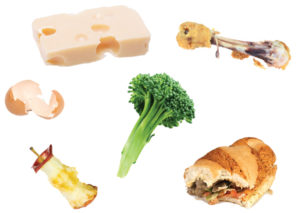
- Bread, grains, and pasta
- Coffee grounds and paper filters
- Dairy
- Eggshells and eggs
- Fruit (pits & peels)
- Leftovers and spoiled food
- Meat (including bones)
- Seafood (including shellfish)
- Tea and tea bags
- Vegetables
Food Soiled Paper
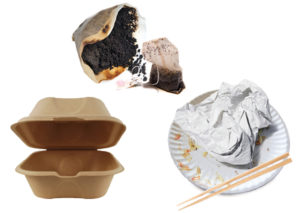
- Coffee filters
- Greasy pizza boxes
- Paper plates (uncoated)
- Paper bags, napkins, tissues, and towels
- Tissues
|
Plants
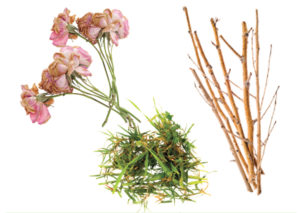
- Branches and brush
- Flowers and floral trimmings
- Grasses and weeds
- Leaves
- Tree trimmings (less than 8 inches in diameter and cut to fit in your cart)
Other
- Cotton balls and cotton swabs
- Hair, fur, and feathers (non-synthetic)
- Compostable plastic bags (bag material must meet ASTM D6400 sections 5.1 through 6.4.2 standard for compostability as published May 2019)
- Waxed cardboard
- Wood – small pieces of lumber or sawdust from clean wood only
- Wooden chopsticks
- Corks – natural
|
|
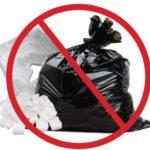 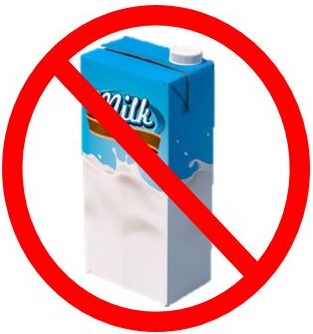
- Aluminum foil or trays
- Shelf stable cartons
- Cat litter or animal feces
- Compostable diapers
- Ceramic dishware or glassware
- Clothing, linens, and rags
- Liquid, fats, oils, and grease
- Corks – plastic
- Diapers
- Dirt, rocks, or stone
- Flower pots or trays
- Foil-backed or plastic-backed paper
- Glass, metal, or plastic
- “Compostable” labeled plastics (PLA)
- Liquids or ice
- Plastic bags, wrappers, or film
- Recyclable/clean cardboard or paper
- Polystyrene foam
- Wood – plywood, pressboard, painted or stained wood
- Dead animals
- Palm fronds
- Oleander trimmings
|
The label on your cart’s lid explains what can be placed inside the cart.
Recycling must be loose, free of a plastic bag liner.
| Acceptable Recycling Materials |
|
Unacceptable Recycling Materials |
Metal (no liquids or food):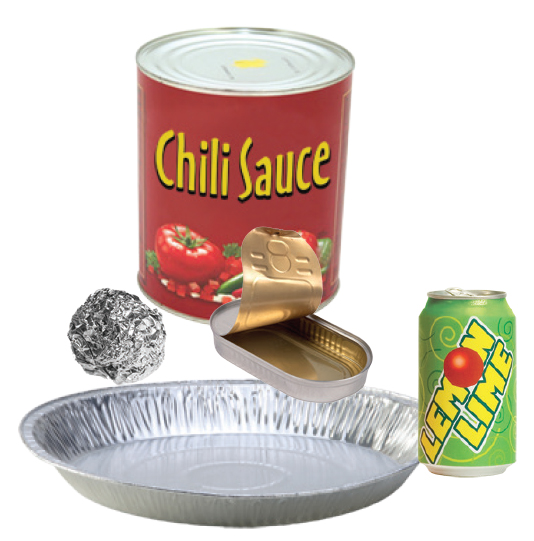
- Aluminum cans
- Tin/steel cans
- Aluminum foil
- Empty aerosol cans
- Empty paint cans
- Foil pie plates
- Metal lids and caps
Plastics: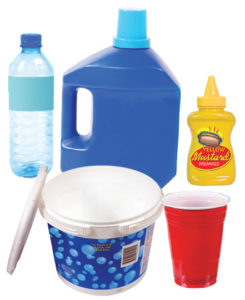
- #1 and #2 plastics
- Water bottles
- Soda bottles
- Milk jugs
- Salad dressing containers
- Peanut butter jars
- Mouthwash bottles
- Cleaning product bottles
- Shampoo, soap & conditioner bottles (not tubes)
- Children’s outdoor plastic toys (sandboxes, slides, play kitchens)
- Clean PVC pipe (no dirt)
- Plastic furniture
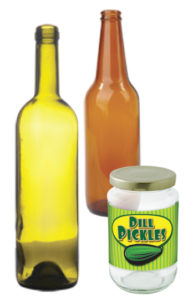 Glass (no liquids or food): Glass (no liquids or food):
- Glass food jars
- Glass beer bottles
- Glass wine bottles
- Glass beverage bottles
- All colors of glass are OK
|
|
Paper (clean, dry, and unsoiled):
- Shoe boxes
- Gift boxes
- Cardboard
- Computer paper
- Notebook paper
- Paper bags
- Paper towel tubes
- Toilet paper tubes
- Junk mail
- Magazines
- Catalogs
- Paper folders
- Shredded paper (place in a paper bag to prevent litter)
- Staples are OK in paper, but please remove paper clips and clasps
- Clean pizza boxes (no cheese or grease)
- Phone books
- Office paper
- Newspaper
- Wrapping paper (non-metallic)
- Cereal & other paperboard boxes
- Egg cartons
- Paperback books
- Hardback Books — remove bindings first (place in trash) and recycle the pages only
|
|
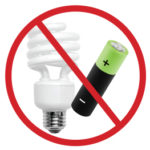 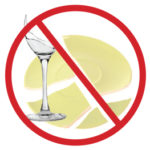 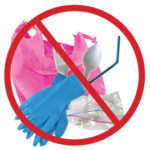 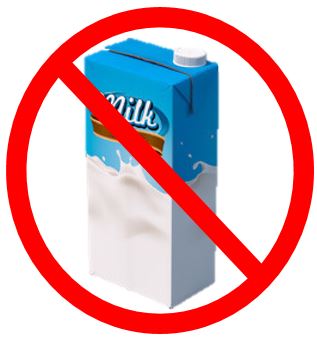
- Plastic Bags – grocery bags, produce bags, resealable food storage bags, plastic food wrap, shrink wrap, and other miscellaneous plastic wraps, cannot be placed in the recycling cart.
- Packing foam & polystyrene packing peanuts – some shipping and packing stores may accept them for reuse.
- Shelf stable cartons
- Plastic labeled “Compostable” or “Biodegradable”
- Auto glass
- Ceramics
- Fluorescent light bulbs & tubes
- Incandescent light bulbs
- Mirrors
- Window glass
- Pyrex dishes
- Porcelain
- Wine glasses
- Hoses
- Rubber tires
- Dishes, plates, bowls & glasses
- Scrap Metal
- Expanded polystyrene (a.k.a. StyrofoamTM Brand Foam)
- Contaminated plastics—items covered in dirt, food, or other materials.
- Electronics
|
Few things, once they are used, are actually considered garbage. Among such things are non-recyclable plastics and other complex materials that were not designed to be recycled.
| Acceptable Garbage Materials |
|
Unacceptable Trash Materials
|
- Cat litter and animal feces (bagged)
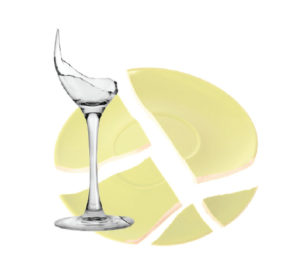 Broken dishware or glassware Broken dishware or glassware- Ceramics
- Cigarette Butts (extinguished – run under water prior to disposal)
- Coffee pods (Keurig k cups)
- Candy wrappers
- Dead animals (under 10 pounds, bagged)
- Diapers and other sanitary products
- Disposable gloves
- Drink pouches
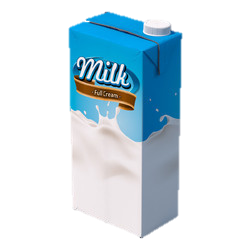 Juice boxes and other shelf-stable cartons Juice boxes and other shelf-stable cartons
|
- Mylar (shiny metal) bags
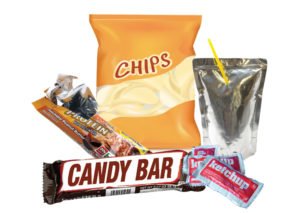 (potato chips, candy bars, balloons, etc) (potato chips, candy bars, balloons, etc)
- Pens and pencils
- Plastic items mixed with metal or rubber
- Porcelain
- Polystyrene foam
- Plastic film
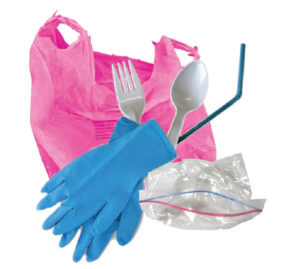
- Plastic bags
- Rubber bands
- Six-pack ring holder – please cut up
- Sponges
- Styrofoam
- Twist ties
- Thermal receipts
- Wood – small pieces of plywood, pressboard, and painted or stained wood
|
|
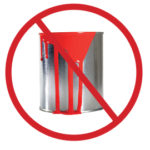 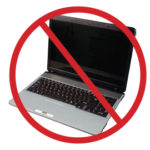 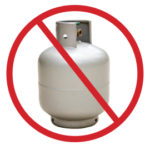
- Appliances
- Asbestos
- Batteries
- Coat hangers
- Construction debris
- Cooking oil and grease
- Dirt, rocks, or stone
- Electronics
- Fluorescent or HID light bulbs
- Food scraps, soiled paper, or yard trimmings
- Household hazardous waste
- Large items (furniture, metal, plastic, wood)
- Liquids or ice
- Motor oil
- Needles or syringes
- Paint
- Recyclable cardboard, glass, metal, paper, or plastic
- Toys with electronics or batteries
- Waxed cardboard and paper
|
Do You Have Extra Trash?
If you have extra trash that does not fit in your cart, please contact us.













 Broken
Broken




